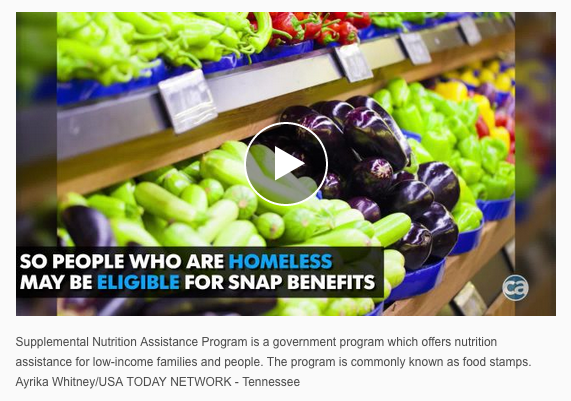Des Moines Register: Trump’s Harvest Box could leave farmers with empty plates

by Kathie Obradovich, kobradov@dmreg.com | Feb. 19, 2018
My husband and I have subscribed to a popular boxed meal service for about a year now. We love the convenience and we enjoy exploring new recipes and ingredients we wouldn’t normally try.
So why is it such a horrible idea to replace part of the SNAP federal food assistance program, formerly called food stamps, with a box of American-grown food?
First of all, the Trump administration’s proposed “Harvest Box” is nothing like Blue Apron, or Hello Fresh, or one of the other meal-subscription services on the market. Most commercial boxes provide some consumer choice. If I don’t eat meat or loathe kale, I can choose meals that don’t include them.
The Trump administration’s idea sounds more like Hello Fallout Shelter, with its description of “shelf-stable” milk, off-brand peanut butter and canned fruits and vegetables. There was no mention of any choices for recipients except for “take it or leave it.”
Imagine the kids’ excitement when the “Harvest Box” shows up with the week’s allotment of whole-wheat pasta and canned beets. It sounds like a recipe for food waste, which not only squanders money but also poses a serious threat to the environment. In the United States, food waste equals 30 to 40 percent of the food supply, according to USDA. In 2010, food waste totaled about $161 billion worth of food.
Money that should be spent on food would be spent on packing and shipping these boxes of disappointment. The Trump administration didn’t go into detail on how the boxes would be distributed, but convenience is unlikely to be part of the package.
Some might find it satisfying if SNAP recipients have less taxpayer money to spend on expensive, sugar-filled breakfast cereal and soda.
In the Iowa Senate, a bill filed by Sen. Amy Sinclair, R-Allerton, would try to persuade the federal government to prohibit the purchase of soda and other carbonated beverages with SNAP.
Senate File 76 would direct the state human services department to petition the federal government to restrict the use of SNAP for beverages that carry a bottle or can deposit. Under current law, that includes carbonated sodas and mineral water. Purchase of alcoholic beverages with SNAP is already prohibited under the federal rules.
Only people with their own money should have the luxury of poor nutrition, right? Low-income people should eat grainy peanut butter and canned sauerkraut and like it! But that sort of petty vindictiveness toward children, disabled people and the working poor (the majority of SNAP recipients) shouldn’t take the place of common sense. Besides, conservatives are supposed to want government to get out of the way of personal choices.
The Trump administration wants taxpayers to think they would be saving money. President Donald Trump’s budget cuts $21 billion from SNAP, part of about $85 billion total from food assistance programs. Everything I’ve read suggests Congress has as much interest in the Harvest Box as the average 5-year-old has in canned spinach. But the proposed cuts to food assistance, not to mention other safety-net programs, might find some support.
Maybe that savings sounds like a good idea — after all, the GOP tax cuts are set to increase the federal deficit by about $1 trillion over the next decade.
But think about where that SNAP money is currently being spent: grocery stores. And when grocery stores around the country start losing $21 billion in revenues, what are they going to do? I can’t know for sure, but my guess is I’ll be paying more for my house-brand, low-sugar breakfast cereal. That extra money in my paycheck from the GOP tax cuts won’t go far if that happens.
Trump-voting Republicans whose rural states depend on farm income should not cheer cuts to food assistance programs, either. Politically, food assistance and farm subsidies are conjoined twins. Start slashing nutrition programs and you’re also slashing political support from urban lawmakers for crop insurance, farm price supports, ag conservation programs and the like.
These programs are important to help farmers get through floods and droughts, and also times when commodity prices dip near or below the cost of production.
And guess what happens when farmers can’t make ends meet? In Iowa, it may mean state government can’t afford to maintain existing levels of support for education, health care, public safety and many other functions.
The Iowa Senate has voted to cut about $32 million out of the current year’s state budget. That includes more than $200,000 out of the Department of Inspections and Appeals this year. Next time you go out to eat, think about whether the state is adequately funding restaurant inspections.
When we take money away from food assistance, we’re taking it off our own plates.